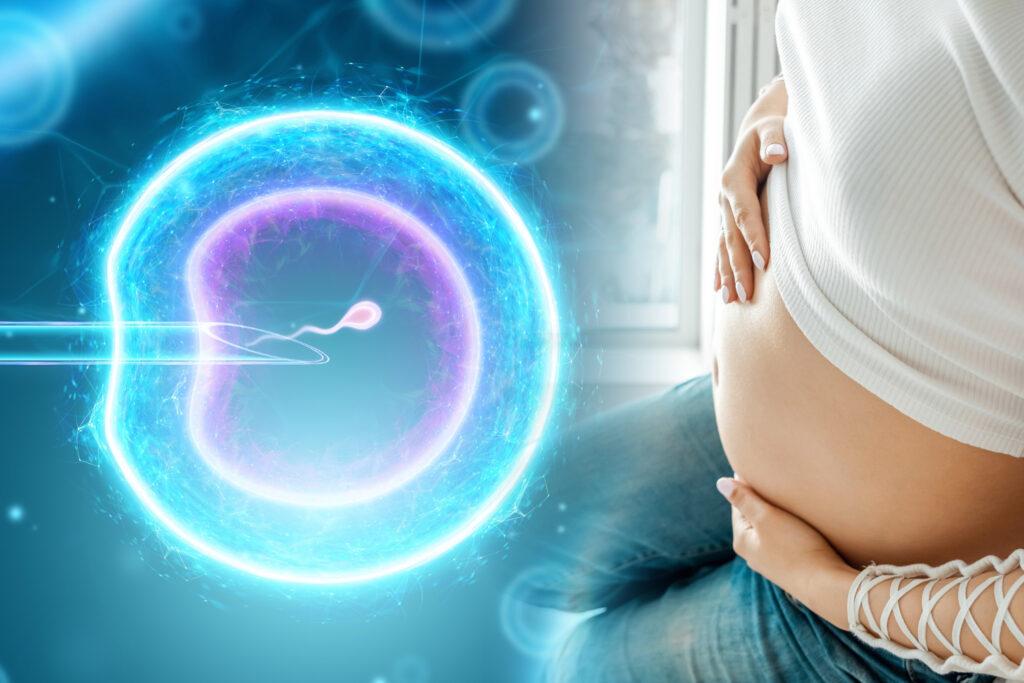Pregnancy at the age of forty is increasingly becoming a reality as more women now choose to start families later in life. Although pregnancy at this stage might need more planning and medical assistance, it’s entirely possible.
However, it’s essential to understand how age influences fertility, egg quality, and overall pregnancy well-being to ensure success.
If you are a 40-year-old woman considering beginning your fertility journey, here’s everything you need to know about the physical changes that take place in your body and how to increase your chances of getting pregnant safely and naturally.
Biological Changes and Fertility Decline
As a woman grows older, the quantity and quality of eggs within her ovaries gradually decrease. After the age of 35, this decline accelerates, and by 40, both egg reserve and chromosomal quality may be compromised.
These natural changes can make conception more difficult and slightly raise the risk of miscarriage or chromosomal defects.
The hormone levels responsible for regulating ovulation — FSH, LH, estrogen, and progesterone — can also fluctuate more frequently. These shifts can influence menstrual patterns and the timing of ovulation.
While this might sound discouraging, the good news is that modern fertility treatments and lifestyle changes can help overcome these biological challenges.
Realistic IVF Success Rates by Age
In-Vitro Fertilization (IVF) has enabled many women in their 40s to have healthy pregnancies. Success rates still depend on maternal age, ovarian reserve, and egg quality.
- Women over 40 have an average IVF success rate of 20–25% per cycle when using their own eggs.
- With donor eggs, success rates can reach 50–60% per cycle, similar to those of younger women in their early 30s.
At Kanaa Fertility, each IVF plan is personalized based on your fertility profile, hormone levels, and individual goals. Pre-treatment testing helps doctors determine whether stimulation, egg freezing, or advanced methods like Preimplantation Genetic Testing (PGT) are appropriate for you.

Enhancing Egg Quality Over 40 Naturally
Although age impacts fertility, you can still work on improving egg quality after 40 naturally through diet and lifestyle changes. The goal is to reduce oxidative stress and promote healthy cell development.
Here are some science-backed tips to support egg health:
- Antioxidants: Include foods rich in vitamins C and E, zinc, selenium, and CoQ10 to protect egg cells from oxidative damage.
- Healthy fats: Omega-3 fatty acids found in fish, walnuts, and chia seeds support hormone balance.
- Balanced diet: Nutrient-dense meals with fruits, vegetables, and lean proteins nourish reproductive health.
- Limit toxins: Avoid smoking, alcohol, and excess caffeine, which can reduce ovarian response.
- Exercise regularly: Gentle movements like yoga and walking improve blood flow to the ovaries.
These habits not only enhance egg quality but also prepare your body for a smooth and healthy pregnancy.
Treatment Options — IVF, Donor Eggs, and PGT
If you’ve been trying to conceive for more than six months without success, it’s time to explore assisted reproductive techniques.
- IVF: At Kanaa Fertility, customized IVF treatments use advanced embryo culture and time-lapse monitoring to improve outcomes.
- Donor Eggs: For women with a very low ovarian reserve, donor eggs can significantly improve pregnancy chances. Learn more about the Donor Egg Program at Kanaa.
- PGT (Preimplantation Genetic Testing): This test screens embryos for chromosomal abnormalities before transfer, reducing miscarriage risk and increasing live birth rates.
Your fertility expert will guide you through these options and help identify the best approach for your health and reproductive goals.
Mind-Body Connection and Reducing Stress
Stress plays a bigger role in fertility than many realize. Persistent stress elevates cortisol levels, which can disrupt ovulation and hormone balance.
Practices like meditation, acupuncture, and yoga can help restore hormonal equilibrium and improve overall well-being.
At Kanaa Fertility, holistic support — including therapy and relaxation techniques — is an integral part of treatment. Emotional wellness directly supports physical health, especially for women undergoing fertility care after 40.
Professional Tips for Planning Pregnancy at 40
Here are a few expert-recommended steps to help you plan pregnancy after forty effectively:
- Get an early fertility assessment: Blood tests, ultrasounds, and hormone checks help determine your fertility status.
- Follow proper nutrition and supplements: Folic acid, omega-3, and CoQ10 are key for fertility health.
- Track ovulation accurately: Use fertility tracking tools or consult your doctor for cycle monitoring.
- Stay active and relaxed: Moderate exercise and stress management improve fertility potential.
- Seek medical help early: If conception doesn’t occur naturally within six months, consult a specialist.
The reproductive endocrinologists at Kanaa Fertility offer compassionate, evidence-based care to help you achieve a healthy pregnancy at any age.
Conclusion
Becoming a mother after 40 is not a distant dream — it’s an achievable goal with the right medical guidance, lifestyle habits, and mindset. While age can bring certain challenges, it also brings emotional readiness, patience, and strength.
If you’re planning pregnancy after forty, reach out to the expert fertility team at Kanaa Fertility for a personalized plan tailored to your health, hormones, and goals.
Balanced choices today can lead to the miracle of life tomorrow.

